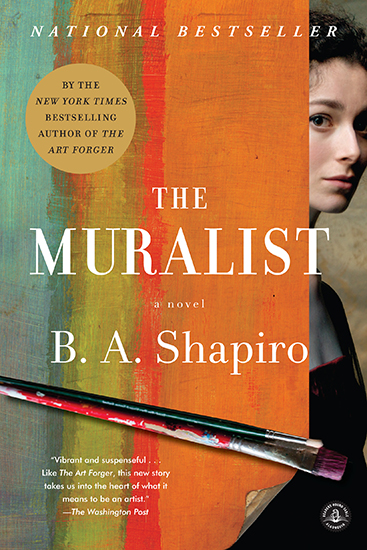
1. The Muralist exposes many facts about the situation in the United States before World War II, including the denial of visas to qualified refugees, the majority of the country’s opposition to entering the war, and the open discrimination against Jews. Did you find any of this surprising? In the wake of the Allies’ victory, how has history generally portrayed this prewar period in America? Do you think there are parallels to the United States in the twenty-first century?
2. The issue of refugees running from war and oppression is as current today as it was during World War II. What similarities and differences to do you see between nations’ responses today and those before World War II? What about in attitudes among U.S. citizens?
3.The author places Alizée, a fictional character, among the real-life artists who created the Abstract Expressionist movement in New York in the 1940s. How did living there at that time inform their art? What do you think makes Abstract Expressionism a quintessential American form?
4. Alizée and her friends are employed by the Federal Art Project, a New Deal program funded by the government to give work to artists. Do you think a government program like this could happen in today’s political climate? How are art and artists valued or supported differently in today’s society?
5. In what ways might artistic talent and mental illness be linked? Did you see manifestations of a link in Alizée? How did that differ from the portrayals of Jackson Pollock and Mark Rothko?
6. Alizée wants to believe that art can change the world. Does art have the power to affect history? What are some examples that illustrate the transforming power of art?
7. Alizée does something illegal in the hopes of thwarting a greater wrong. Do you agree with what she does? Are there times when such decisions are justifiable? What was her state of mind when she made the decision?
8. How much do the times in which you live affect your individual life choices? How might Alizée’s life have been different if she had lived in the twenty-first century? Would her artistic dreams have been realized? How does Alizée’s artistic life compare with that of her grandniece Danielle?
9. When Danielle finds out the truth about what happened to her aunt, she seems able to become the artist she was meant to be. Why? Which was more important: finding the answer, or asking the question in the first place?
10. Were you surprised at how Alizée’s life turned out? Relieved? How do you think Alizée felt about it? How did her art define her life, even amid drastic change?

